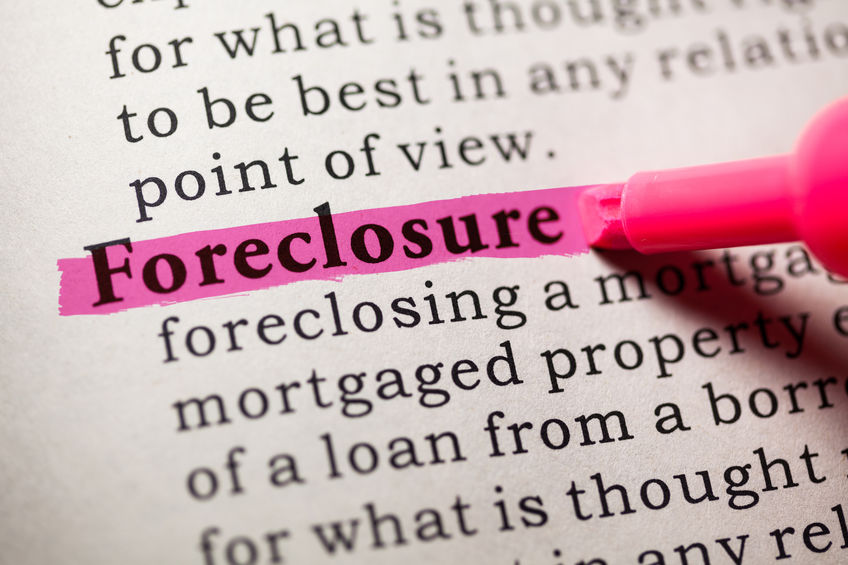If you are facing foreclosure, or believe foreclosure is imminent, don’t sit idly by and let it happen. Don’t ignore your lender’s calls. Foreclosure is a lengthy and expensive process that your lender may also be trying to avoid. Your lender may be calling regarding the following alternatives to foreclosure. Ask your lender if you are eligible to apply for any of the following:
Short Sale
A Short Sale occurs when a homeowner sells their property for less than the balance remaining on their mortgage. Before a homeowner may execute a short sale, the lender must sign off on the decision. The lender, typically a bank, will need an explanation as to why a short sale makes sense, since the lender may lose money in the process. Usually, the owner is under financial stress and the market value of the property has declined relative to the borrowed amount. If the lender agrees, the buyer and seller will negotiate first and then seek approval from the lender.
Advantages:
- A short sale is not as detrimental to the owner’s credit score as a foreclosure.
- Homeowners may, with certain restrictions, be eligible to purchase another home immediately.
- If the short sale is successful, the borrower will usually be released from further liability from the amount remaining on the mortgage.
- Unlike during foreclosure, during the short sale process the owner may reside on the property and retain some control over the process.
Disadvantages:
- The process is very paperwork-intensive and can take up to a year.
- In some cases, borrowers are not released from liability and the banks come trying to collect the remaining balance of the mortgage.
- Approval ultimately rests on the lender, who may decide that it will recover more from a private sale after foreclosure.
Loan Modification
Loan modification occurs when the terms of a mortgage are amended so the owner can afford payment. The lender may modify the interest rate, convert from a variable to a fixed interest rate, or extend the length of the term of the loan. The owner must show that they cannot afford their current mortgage payment due to hardship caused by the loss of a spouse, the loss of a job, or disability or illness that affects the owner’s ability to pay the mortgage. Further, the lender will conduct a trial period for the borrower to prove they can afford the new payments.
Advantages:
- A loan modification is not as detrimental to the owner’s credit score as a foreclosure.
- The payments will be adjusted to fit the owner’s current situation.
- The fees involved in modifying the loan may be added onto the principal of the loan, relieving the borrower from having to come up with the funds at the time of modification.
Disadvantages:
- The term of the loan may be extended, meaning it will take longer to pay off the loan and will have more interest.
- Some banks may offer modifications that increase the monthly payments.
- If the financial hardship is not short-term, the borrower may default on the new loan and still be foreclosed on.
- Approval ultimately rests on the lender, who may decide that it will recover more from a private sale after foreclosure.
Deed in Lieu of Foreclosure
A deed in lieu of foreclosure is usually seen as a last resort, after the bank has denied a loan modification and rejected a short sale. A deed in lieu of foreclosure occurs when foreclosure is imminent, and the property owner deeds the house to the lender and is relieved from the remaining balance of mortgage.
Advantages
- The homeowner will be relieved from the remaining balance of the mortgage.
- This is a mutually agreeable process, so owner will not have officials show up at their door to evict them.
- In some cases, lenders agree to lease the property back to the borrower for a certain period of time.
Disadvantages
- If there are any encumbrances, judgments, or liens on the property, the lender likely will not accept the deed, because they will stay with the property and be the lender’s responsibility.
- The lender may require the borrower to make a financial contribution in exchange for acceptance of the deed.
- The transaction may affect the homeowner’s credit score just as much as foreclosure.
- Homeowner cannot immediately buy another home.
- Approval ultimately rests on the lender, who may decide that it will recover more from a private sale after foreclosure.
Be sure to consult an attorney before agreeing to any of the alternatives mentioned above.








